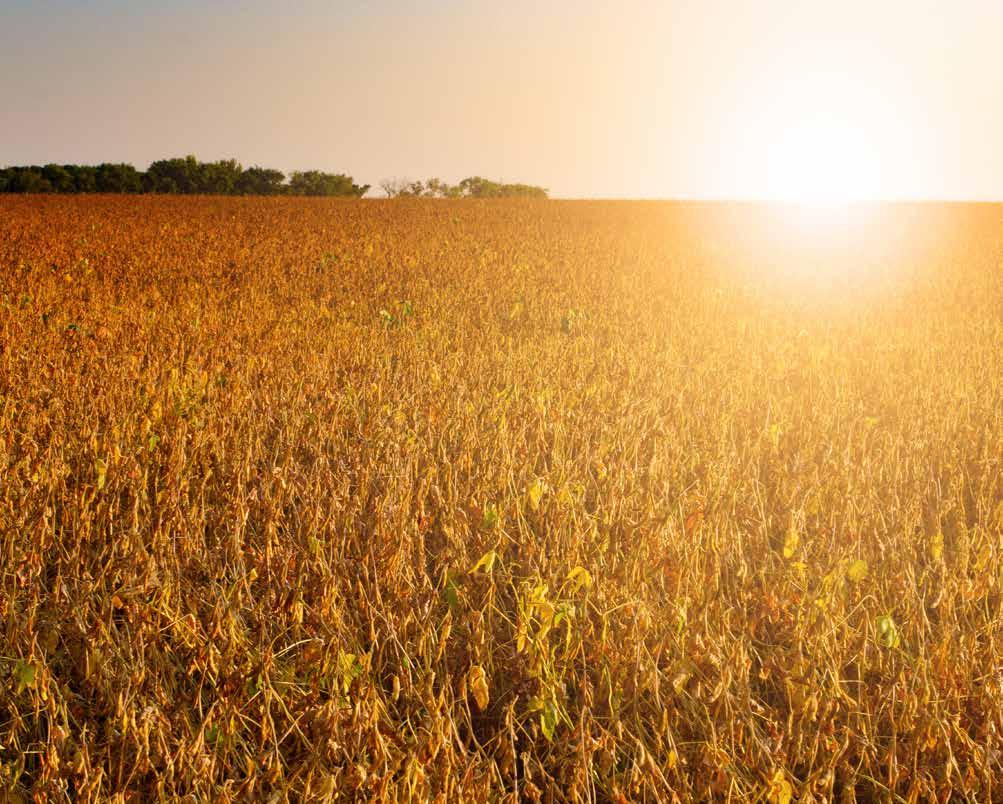
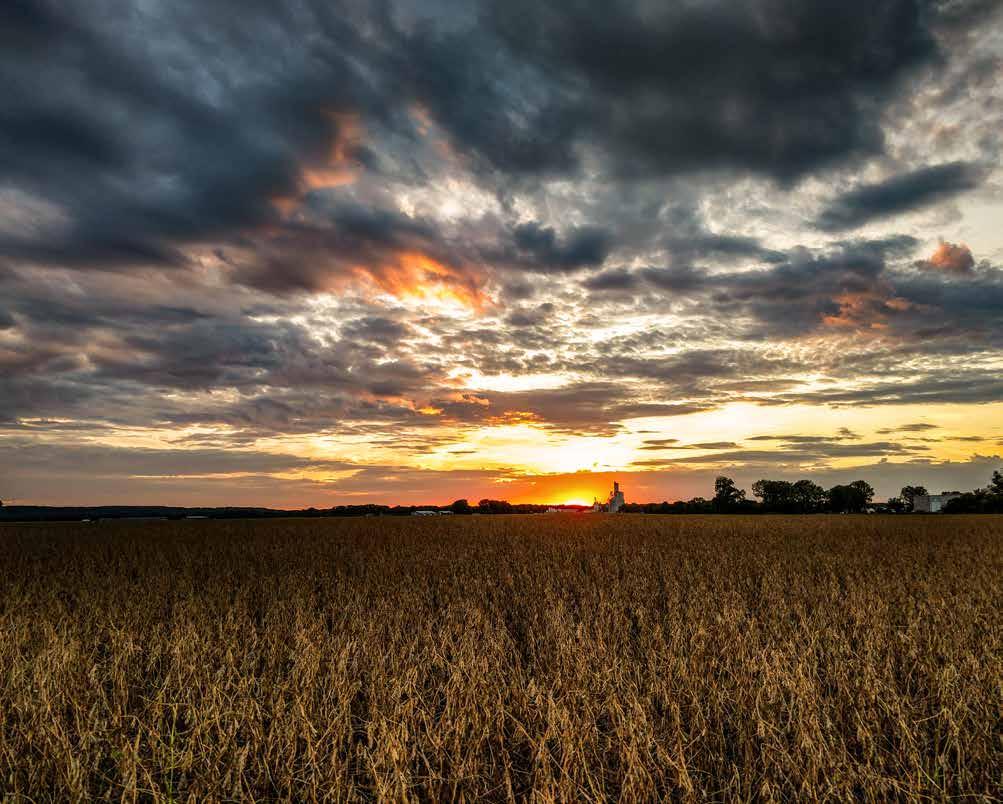



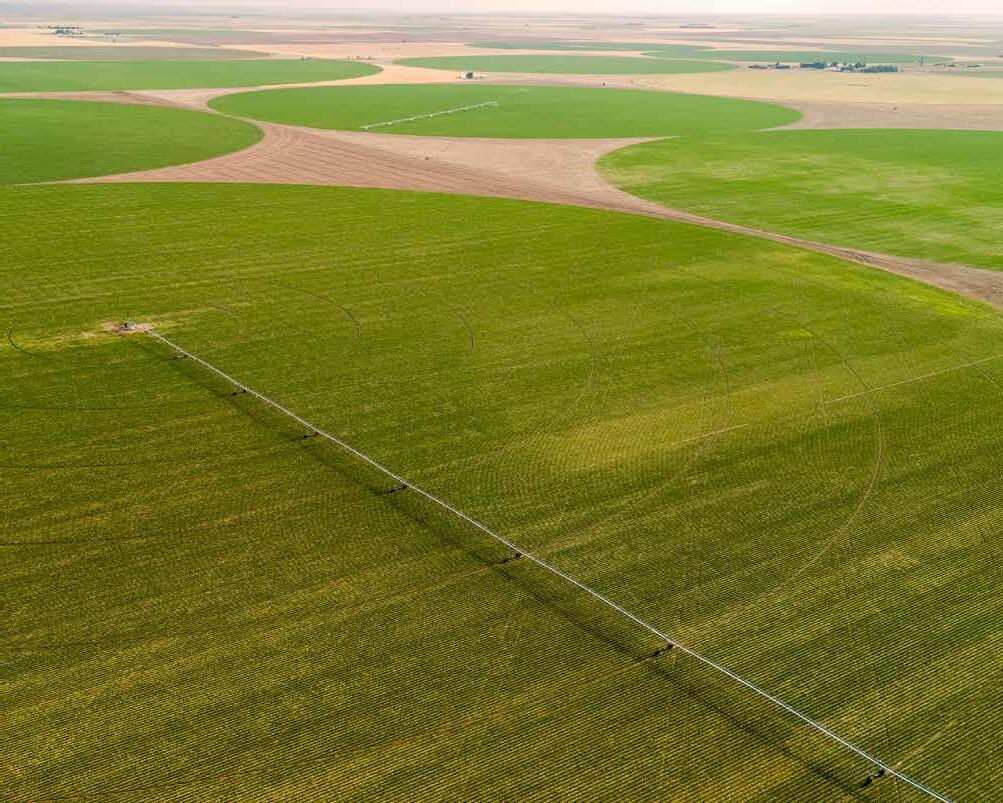
To Our Customers,
We know this ground because we live on it. We know the winds, the rains, and the seasons that test it. That’s why every seed we stand behind is proven here, backed by research, and supported by a team that knows what it takes to grow in this region.
As part of MKC, Mid-West Fertilizer serves farmers across Kansas, Missouri, Oklahoma, and Arkansas. This 2026 Seed Guide isn’t just a list of products, it’s a set of choices built for the realities of your acres, designed to help you make every field count. Thank you for your trust. Here’s to a season of strong roots and good harvests.

Mid-West Fertilizer provides a wide range of high-performing corn hybrids selected for the diverse growing conditions across Kansas, Missouri, Oklahoma, and Arkansas. Each hybrid is chosen for yield potential, standability, and adaptability to the varied soils and climates throughout our region.
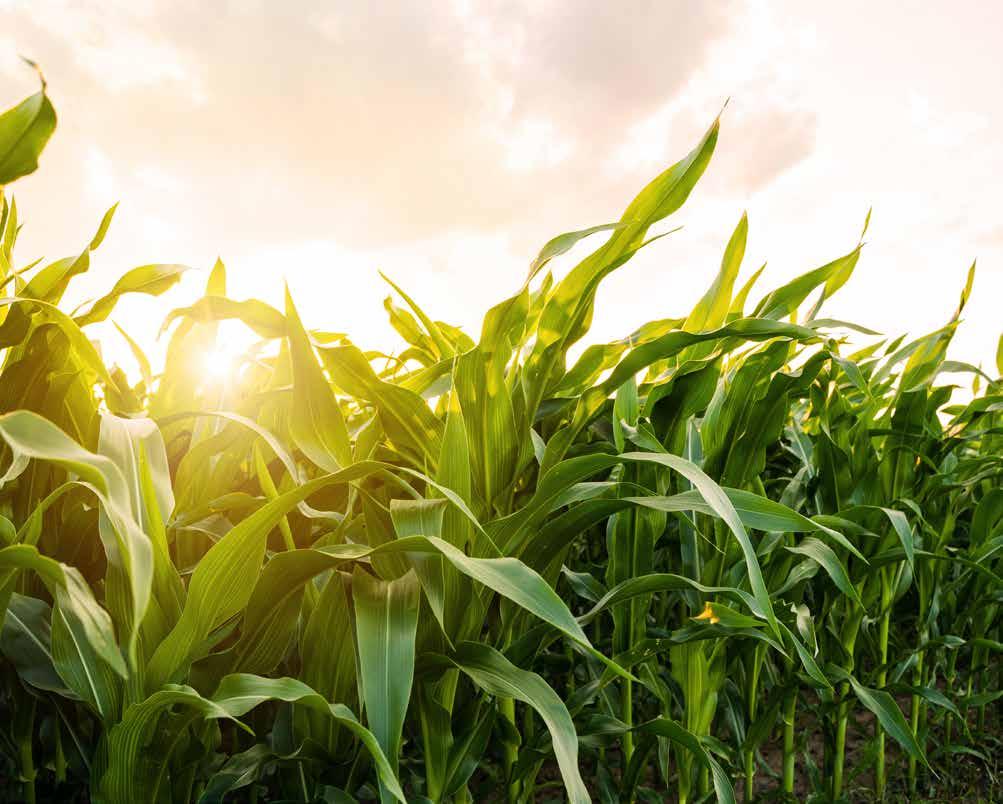
Why Choose Your Corn Seed from Mid-West Fertilizer?
• Regional Expertise: Our team understands the unique challenges across this four-state area, from Kansas heat and drought stress to variable rainfall and soil types in neighboring states. Every hybrid we offer is tested locally to deliver dependable performance where you farm.
• Partnered Success: From planting through harvest, Mid-West Fertilizer supports your operation with elite genetics, agronomic insights, and trusted guidance to help you protect plant health and maximize yields.
With the right hybrid matched to the right acre, you can count on Mid-West Fertilizer to help your corn crop reach its full potential. Talk with your MidWest Fertilizer agronomy team to select hybrids tailored to your fields and growing conditions.
DEKALB® hybrids offer strong performance in Central Kansas, with dryland varieties emphasizing drought tolerance and irrigated varieties balancing yield potential with adaptability to occasional wet conditions. Disease tolerance is a key differentiator among the hybrids, especially in irrigated or higher-rainfall areas, while soil drainage remains an important factor to consider for maximizing yield.

Brevant® corn hybrids provide strong adaptability to Central Kansas, with dryland varieties emphasizing drought resilience and irrigated varieties balancing yield potential with stability. The main considerations across several hybrids are sensitivity to poorly drained soils and, in some cases, moderate drought stress, so careful field selection and management remain critical for maximizing yield.
CROPLAN® corn seed differentiates itself through strategic genetic selection, in-depth regional testing, advanced trait integration, built-in nutrition and zinc seed treatment protection. The Mid-West Fertilizer team backs the hybrids with data-driven and ROI-focused management opportunities.
Value TraitAdded
MaturityRelative Marginal Dryland Maturity (120 Bu/AOr Less)






Productive Dryland/ Limited Irrigation IrrigatedProductive ToleranceDrought StrengthStalk SnapGreen
SYMBOLS CORN: CORN:
Highly Recommended Marginal Dryland (120 Bu A/Or Less)
Excellent Drought Tolerance + Recommended in most situations
Productive Dryland/Limited Irrigation + Good Stalk Strength
Not Recommended Productive Irrigated
COMMENTS:
Poor Green Snap
This product has demonstrated impressive yield potential and broad adaptability across various yield environments. It offers strong tolerance to green snap and Goss’ Wilt, along with average tolerance to pH, making it wellsuited for western growing regions. The hybrid features a girthy, semi-flex ear type, with medium planting populations recommended for optimal performance. Additionally, it includes VT4PRO™ Technology, which enhances above-ground protection and incorporates RNAi Technology for effective corn rootworm protection.
Solid agronomic packages with excellent stalk strength and green snap tolerance. Product has demonstrated stability under heat and drought stress. Has shown average staygreen and harvest appearance with quick dry down. Nice disease tolerance package with excellent Southern Rust, Gray Leaf Spot, and Anthracnose Stalk Rot tolerance. Use caution on fields with a history of Goss’s Wilt. Above average tolerance on high pH soils.
This DEKALB Tough Acre product has shown outstanding stability in lower yielding environments. It has performed well in drought stressed environments and in hot growing conditions with moderate flex ear. Watch outs are late season root strength.
111 Day RM VT Double PRO® RIB Complete® corn Brand Blend product with excellent emergence potential and outstanding yield potential. Roots will be the anchor of this product followed by big test weight and very good grain quality. Fusarium Crown Rot tolerance should allow this product to handle the heavy, poorly drained environments. Very strong Southern Rust tolerance but use caution on fields with a history of Goss s Wilt. Below average on high pH soils.
Broad acre product that brings exceptional western adaptation. Has shown fantastic green snap tolerance, excellent Goss’s Wilt tolerance, and above average pH tolerance. Very Strong performance under limited and full irrigation scenarios. Has shown strong heat stress tolerance. May benefit from a fungicide if fungal diseases are active. Good wet feet tolerance.
Strong emergence supports early planting and excellent stalk strength enables flexible harvest timing. Sharp looking plant in the field with above average test weight and good husk coverage. Semi-flex ear type that has shown good performance at medium to medium low populations. Use caution on high pH soils.




SYMBOLS CORN: CORN:
Highly Recommended Marginal Dryland (120 Bu A/Or Less)
Excellent Drought Tolerance
+ Recommended in most situations Productive Dryland/Limited Irrigation + Good Stalk Strength
Not Recommended Productive Irrigated
COMMENTS:
Poor Green Snap
This widely adapted Optimum® AQUAmax® hybrid fits well within a key maturity range and offers very strong drought tolerance. It features exceptional stress emergence, making it ideal for early planting conditions. The hybrid comes with a strong foliar disease package, including tolerance to Goss s wilt. It also has slightly above-average stalk and root strength, along with good resistance to brittle snap. Additionally, it performs well in high pH soils, making it a versatile and reliable choice for various growing environments.
This product delivers consistent high yields, supported by broad adaptability and strong agronomics. It offers very good stress emergence, making it well-suited for early planting and no-till soils. With strong roots, stalks, and green snap scores, it also provides good drought tolerance for stability in variable yield environments. Additionally, it demonstrates good tolerance to northern corn leaf blight and gray leaf spot, with best performance achieved in traditional 106RM environments and farther north.
This Optimum® AQUAmax® hybrid is a leading performer on dryland and tough acres, offering strong yield potential even under stress. It delivers very strong drought tolerance and features a well-rounded disease package, including solid ratings for Goss’s wilt, Northern Leaf Blight (NLB), Gray Leaf Spot (GLS), and Tar Spot. With good test weight and ear flex, it performs particularly well on stress acres. The hybrid also has a taller plant stature and moderate to high ear placement, making it well-suited for terraces and challenging environments. Timely harvest is recommended to optimize performance.
This hybrid is a proven leader in central and western regions, delivering strong yield performance under moderate to high stress conditions. It offers excellent drought tolerance and strong western ratings for Goss’s wilt, brittle snap, and root strength. With a taller plant stature and moderate to high ear placement, it is well-suited for terraces and challenging environments. To maintain optimal plant health and yield, a fungicide is recommended in areas with a high risk of Gray Leaf Spot.
This hybrid delivers dominating top-end yield potential while maintaining good stability in lower-yield environments. It performs best in the traditional 113 RM zone and further south, where its strong roots and high yield potential make it well-suited for prairie soils. With high test weight and above-average drought tolerance, it supports consistent performance across western acres. For fields with a high risk of Northern Corn Leaf Blight, a fungicide application is recommended to protect yield and plant health.
This leader hybrid combines high yield stability with strong agronomics, making it a reliable performer across the entire Corn Belt. It offers dependable drought tolerance and silks early for its maturity, contributing to its adaptability. With good root and stalk strength, along with mid-season brittle snap tolerance, it stands up well under varying conditions. The hybrid produces high test weight grain with food-grade qualities and features very good tolerance to Northern Corn Leaf Blight (NCLB), Goss’s wilt, and Southern rust.
TraitAdded MaturityRelative Marginal Dryland Maturity (120 Bu/AOr Less) Productive Dryland/ Limited Irrigation IrrigatedProductive ToleranceDrought StrengthStalk SnapGreen






SYMBOLS CORN:
Highly Recommended Marginal Dryland (120 Bu A/Or Less)
CORN:
Excellent Drought Tolerance
+ Recommended in most situations Productive Dryland/Limited Irrigation + Good Stalk Strength
Not Recommended Productive Irrigated
COMMENTS:
Poor Green Snap
This hybrid is best suited for variable to tough acres, offering excellent emergence, strong seedling vigor, and a solid root system. It features a semi-flex ear, making it ideal for planting at moderate populations. However, it is recommended to avoid fields with a history of Goss’s wilt to ensure optimal performance.
This versatile product can be grown successfully from east to west across the Corn Belt. It is a flexible hybrid capable of performing well on both lower-yielding and high-yielding acres. With a moderate response to fungicide applications, it can benefit from improved late-season plant health.
This hybrid delivers high yield potential when placed on medium-to-highly productive acres. It offers excellent emergence, strong late-season stalk integrity, and solid drought tolerance. To maintain plant health and maximize yield, managing key diseases and ensuring late-season intactness through fungicide applications is important. A fungicide is especially recommended in areas where Gray Leaf Spot and Southern Rust are concerns.
This versatile, dual-purpose product is well adapted across multiple yield environments. It features excellent stalk strength, strong root systems, and high test weight, along with strong drydown characteristics. Yield potential can be optimized through enhanced nitrogen management and planting at moderate-to-high densities. It is best positioned on rotated acres, with ear tip back influenced by genetics.
This hybrid is widely adapted from east to west, performing well across various soil types and yield levels. It features strong roots, excellent drought tolerance, and delivers impressive test weight. With a semi-flex ear and a high response-to-population score, it can be effectively positioned across a wide range of yield environments. However, fields with a history of Anthracnose and Southern Rust should be managed carefully to maintain optimal performance.
This product is broadly adapted across various yield environments and excels on highly productive acres. It offers a strong agronomic package with very good grain quality, and its semi-flex ear type allows for flexibility in planting populations.
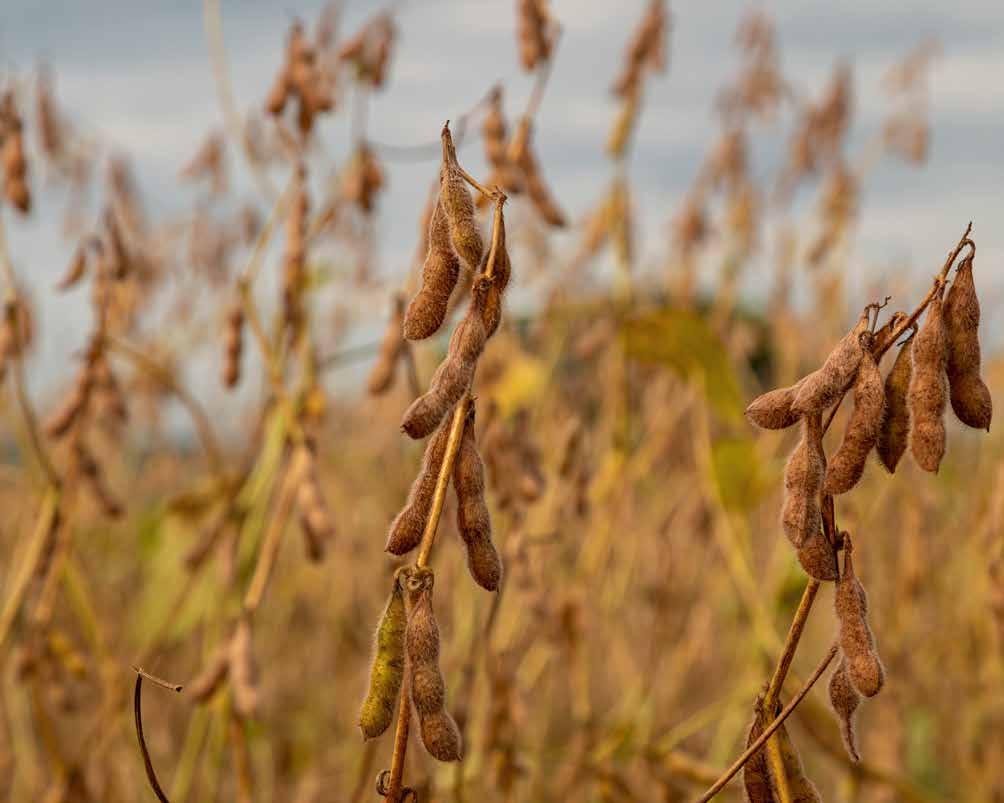
Mid-West Fertilizer offers a diverse lineup of high-performing soybean varieties selected to thrive across Kansas, Missouri, Oklahoma, and Arkansas. Each variety is chosen for yield potential, agronomic strength, and adaptability to the soils and growing conditions found throughout our region.
Why Choose Mid-West Fertilizer Soybean Seed?
• Local Expertise: Our agronomy team knows the challenges unique to this four-state area — from Kansas drought stress to disease pressures in neighboring regions. Every variety we reccomend is tested locally to ensure dependable performance in your fields.
• Partnered Success: From planting through harvest, Mid-West Fertilizer supports you with proven genetics, agronomic insights, and trusted guidance to help maximize yields, protect plant health, and get the most out of every acre.
With the right variety matched to your fields you can count on Mid-West Fertilizer soybeans to deliver reliable results. Talk with your Mid-West Fertilizer agronomy team to find the best fit for your operation.
Asgrow® soybean varieties provide Central Kansas growers with adaptable options that balance early vigor, drought resilience, and disease resistance to achieve consistent performance across both dryland and irrigated fields.

Brevant® soybean varieties offer a combination of early vigor, strong standability, and consistent performance across dryland and irrigated conditions, with disease resistance traits providing added protection to maintain yields under stress.
CROPLAN® soybean varieties contain high-end genetics and top-tier yield potential. The Mid-West Fertilizer team provides local expertise and data-backed management recommendations to help CROPLAN soybeans optimize your profit potential for every soybean acre.
TolerantHerbicide Trait
MaturityRelative Marginal Dryland Productive Dryland/ Limited Irrigation IrrigatedProductive PlantRelative Height TypeCanopy HarvestStandability
SYMBOLS SOYBEAN:
Highly Recommended Marginal Dryland
SOYBEAN:
Excellent Harvest Standability
+ Recommended in most situations Productive Dryland/Limited Irrigation + Good
Not Recommended Productive Irrigated
COMMENTS:
Poor
Medium tall plant with very good stress tolerance for tougher dryland. Emergence and early seeding vigor has shown to be good. Good SDS tolerance. SR stacked trait. Should offer a good value for dryland and double crop. Below average IDC tolerance.
4.9 RM that brings outstanding yield potential and standability for use in lower yield environments. Medium tall plant type with good emergence. Solid SDS and FELS tolerance. Non SR traited!
Medium tall to tall plant height with a medium bushy canopy. It offers resistance to soybean cyst nematode and includes a strong Phytophthora package driven by the Rps1c gene, along with very good field tolerance. Additionally, it provides very good tolerance to SDS and Southern Stem Canker, making it a solid choice for disease-prone environments.
3.9 RM product that brings an outstanding agronomic and disease tolerance package for broad use potential. Has shown top performance in MD trials. Has shown strong emergence even in poorly drained soil. Solid SDS and PRR tolerances. This is a salt excluder. Has shown below average tolerance to IDC in local screenings.

TolerantHerbicide Trait
MaturityRelative Marginal Dryland Productive Dryland/ Limited Irrigation IrrigatedProductive PlantRelative Height TypeCanopy HarvestStandability
SYMBOLS SOYBEAN:
Highly Recommended Marginal Dryland
+ Recommended in most situations Productive Dryland/Limited Irrigation
Not Recommended Productive Irrigated
COMMENTS:
SOYBEAN:
Excellent Harvest Standability
+ Good
Poor
This leader soybean variety offers excellent emergence, making it ideal for early planting in cold, wet soils. It provides strong tolerance to Sudden Death Syndrome (SDS), Brown Stem Rot (BSR), and Charcoal Rot. With a robust canopy width and moderate plant height, it delivers strong agronomic performance. The variety includes the Rps1K gene for Phytophthora resistance, along with strong field tolerance. Featuring BOLT® herbicide technology, it also offers outstanding STS tolerance, making it a top-performing choice for a wide range of growing conditions.
This variety offers very good harvest standability and excellent eye appeal, along with strong tolerance to SDS. It also provides strong resistance to Frog Eye leaf spot and stem canker, is intermediate for chloride exclusion, and has good Phytophthora field tolerance. As an industry-leading yielder with a strong agronomic package, it stands out for both performance and disease resistance. Traits are categorized as Highly Suitable for key strengths, Suitable when meeting standards, Manage Appropriately when specific management is needed, and Strong Caution when limitations exist, with some ratings not available for certain characteristics.
This leader soybean variety offers excellent emergence, making it ideal for early planting in cold, wet soils. It provides strong tolerance to Sudden Death Syndrome (SDS), Brown Stem Rot (BSR), and Charcoal Rot. With a robust canopy width and moderate plant height, it delivers strong agronomic performance. The variety includes the Rps1K gene for Phytophthora resistance, along with strong field tolerance. Featuring BOLT® herbicide technology, it also offers outstanding STS tolerance, making it a top-performing choice for a wide range of growing conditions.
DRYLAND:
TolerantHerbicide Trait MaturityRelative Marginal Dryland Productive Dryland/ Limited Irrigation IrrigatedProductive PlantRelative Height TypeCanopy HarvestStandability
+ Medium Light Interception
SYMBOLS SOYBEAN:
Highly Recommended Marginal Dryland
SOYBEAN:
Excellent Drought Tolerance + Recommended in most situations Productive Dryland/Limited Irrigation + Good
Not Recommended Productive Irrigated
COMMENTS:
Poor
This single-line, medium-tall variety offers high-yield potential and excels in high-yield environments while maintaining the ability to handle stress. It provides excellent standability and very good tolerance to SDS
This STS®-tolerant excluder variety is broadly adapted from east to west and performs well on most soil types, including heavy clay soils. It features a taller plant type with strong emergence and standability, along with excellent tolerance to Cercospora leaf spot. It should be managed carefully in areas with severe SDS and Phytophthora Root Rot.

